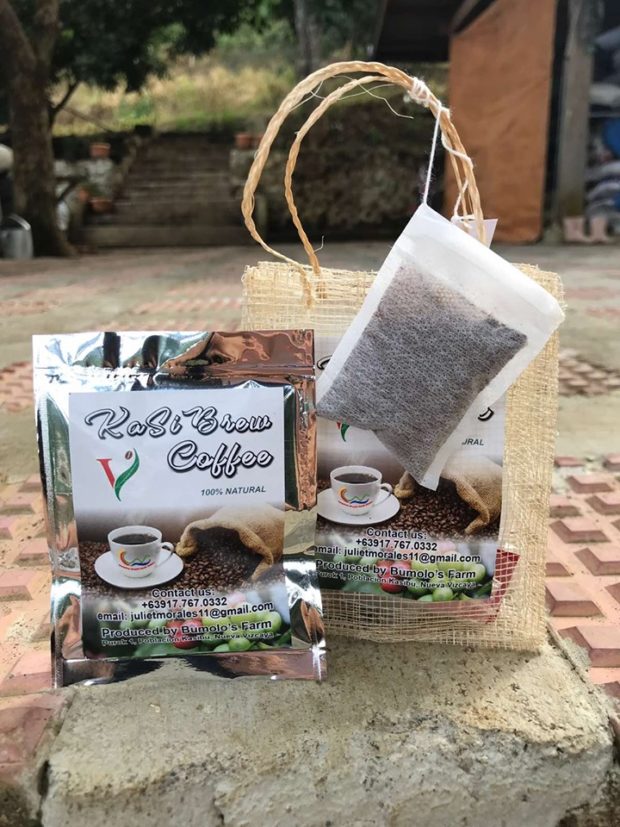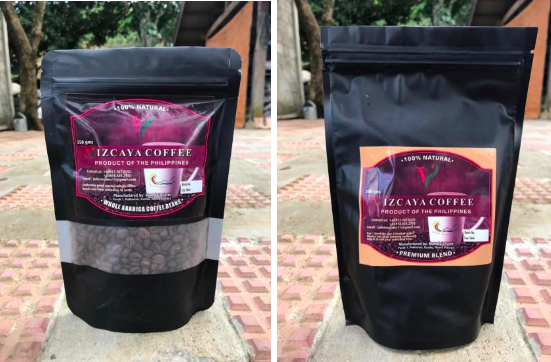The making of KASIBREW and a woman’s journey from trader to coffee producer
People know of Batangas Coffee (barako, Liberica) or Sagada Brew, also known as SGD, but very few probably heard of Kasibu Coffee, or where Kasibu is in the mountainous region of Nueva Vizcaya. Yet, coffee is now growing in the area, thanks to the painstaking cultivation of a trader turned coffee producer Juliet Bumolo Morales.
Hailing from the clan that built the actual town of Kasibu and a proud Ifugao, Juliet tells a remarkable story on how she paved the way for the town to go back into coffee farming.
“We used to have a lot of robusta coffee trees in the area. In the past Kasibu was a leading coffee producer in the Vizcaya region, but the decline of coffee bean prices discouraged farmers from continuing to tend their farms. The farmers eventually switched to citrus or vegetable production,” tells Juliet.
She had to find a way to convince her neighbors that coffee production is worthwhile.
Juliet’s plan was to create a business concept and show proof that it works. When her son–who back then was working as a technical officer in the Philippine Coffee Board–came back from a seminar bringing Arabica seeds, she knew it was time to jumpstart the project.
“My son is an agricultural engineer, so when he said we can plant the seeds, I tried it in my backyard. I tended the coffee seeds based on our expertise, despite skepticism from the community on survivability of this type of coffee. Now, I have Kasibu Arabica, a citrusy, sugary sweet coffee native to Nueva Vizcaya,” she said triumphantly.
The trader’s success did not happen overnight. Like the coffee trees that took two years to grow, the cultivation journey was a time of trial and error. Care and management was the key – a lot of weeding, fertilizing, and pruning were done before the first harvest.
“From a piece of land in my backyard, I expanded to planting in a hectare of land and spending about two hundred thousand pesos for the labor, seeds, cultivation tools and fertilizers. On our first harvest, that land yielded some five hundred kilos of fresh berries. From these harvest, I started to process and sell freshly ground coffee. By joining trade fairs, I gained and retained customers: Pasalubong Center of DTI, Department of Agriculture (DA), Coops, Coffee Shops. I have also produced coffee in tea bags, thanks to a tip by DA. Before, no one from the community believed that I can do it, now farmers and even industry experts come to me to learn how I managed to do it.”
When an NGO came to explore with the community what livelihood project is viable for Kasibu, she strongly recommended Coffee Production, the proof of concept being her coffee plantation. Following a number of stakeholder meetings with the community, the local government, and some private sector partners, coffee growing was folded in to Kasibu and OceanaGold Philippines’ Golden Future for Agriculture program.
OceanaGold Philippines, one of the more prominent companies in the Kasibu, provided technical support for the pilot — testing the suitability of farmer’s lands for coffee growing; providing coffee seedlings to farmers; subsidizing fertilizer needs and providing farming tools; capacity building to the farmers to produce large volumes of quality coffee.
To date, about 76 farmers are enrolled in the program, to whom 31,000 seedlings of Arabica and Robusta coffee have been distributed. Out of the 31,000 coffee seedlings, 24,000 coffee seedlings have successfully grown and survived.
OceanaGold likewise designed a program for Kasibu farmers to earn while waiting for the coffee trees to bloom. Aside from vegetable production, they also provided fruit tree seedlings like rambutan, lanzones, and citrus for additional sources of income.
“We have come a long way from raising the interest of and capacitating the farmers to grow coffee. I am happy to announce that the community is due to have its first harvest in 2022. I am predicting that harvesting even just 5% from the coffee trees we planted will provide us with enough volume of coffee to start large scale coffee production; we can then market the coffee beans locally and internationally. Both DA and OGPI committed to helping us in provision of seedlings, fertilization of land, and provision of a Processing Center that will house equipment for milling, roasting, grinding and packing coffee. Truly, with community-government-private entity partnerships, we can make things happen,” Juliet said.
Looking into the future, Juliet aims to establish a coffee shop that will serve as the home of Kasibu coffee, so Kasibunians and other customers can have a sip of the Kasibu coffee brew she fondly branded Kasibrew.
ADVT.

